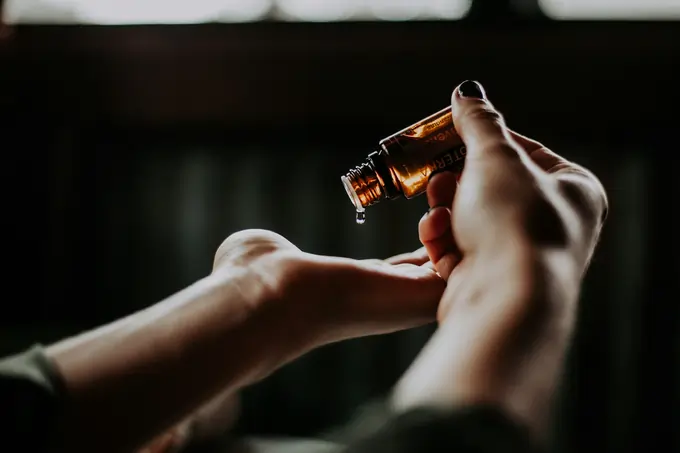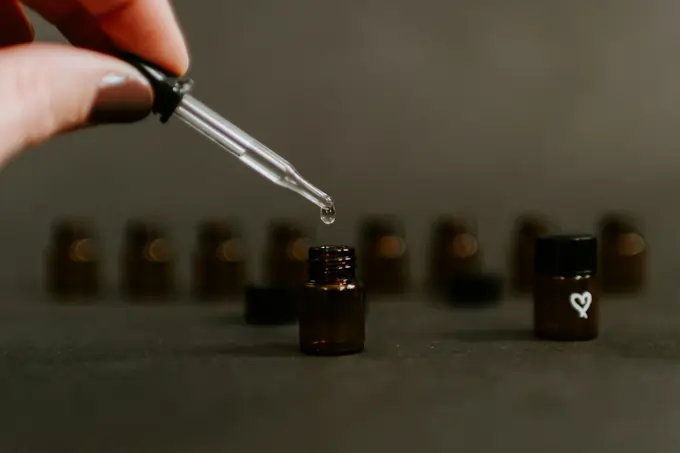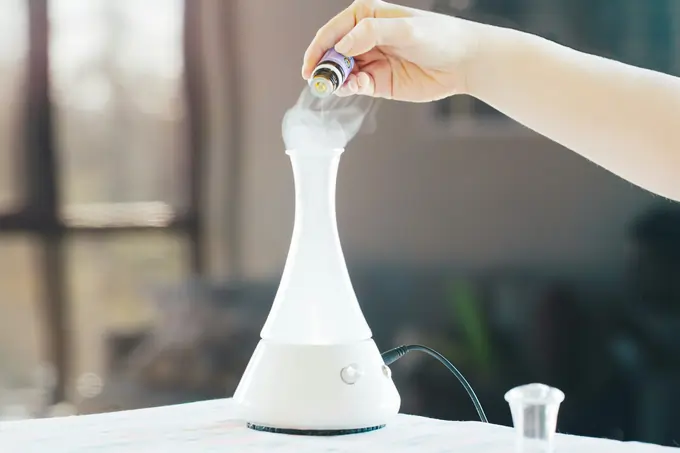
Discover the Power of Pure Essential Oils for Skincare, Cleaning & Aromatherapy
Essential oils are concentrated plant extracts that capture the natural aroma and therapeutic benefits of various botanicals.
They are widely used in aromatherapy, natural skincare, household cleaning, and more. This article explores what essential oils are, how to use them safely, and their many applications.
What Are Essential Oils?
Essential oils are pretty cool; they’re like the concentrated essence of plants. An essential oil set can include stuff like peppermint essential oil and lemongrass essential oil. If you’re into essential oils and aromatherapy, you’ve probably heard of brands like young living. People use these premium essential oils for all sorts of things—some even claim they have the power of essential oils on their side!
Essential oils are generally safe to use, but sometimes an oil may not work as well for everyone and may cause serious reactions. Studies on essential oils show mixed results, so while organic essential oils like rose oil and organic lavender essential oil might work wonders for some, others stick to normal vegetable oil. They’re often used in things like hair care and as a natural repellent. Essential oils like citronella and aromatherapy oil can be a godsend for your well-being.
For plant therapy, essential oils are often used to create an aromatic environment. But remember, essential oils may not work as well in every situation, so a little research before diving into the world of oils can be a good idea!
How Are Essential Oils Made?
Essential oils are obtained through careful extraction processes from different parts of plants, such as flowers, leaves, bark, or roots. The most common methods are:
- Steam distillation: Plant material is heated with steam, causing the essential oil to vaporize and condense.
- Cold pressing: Citrus peels are mechanically pressed to release their oils.
- Solvent extraction: Oils are dissolved using solvents like hexane or CO2.
Different Types of Essential Oils
There are hundreds of essential oils, each with unique properties and aromas. Some of the most commonly used essential oils include:
- Lavender
- Peppermint
- Lemon
- Eucalyptus
- Tea tree
- Rosemary
- Frankincense
- Citrus oils like orange and grapefruit
Common Uses for Essential Oils
Essential oils have been used for centuries in traditional practices and alternative medicine. Today, they are popular for:
- Aromatherapy: Inhaling or diffusing oils to promote relaxation, boost mood, or improve sleep.
- Skincare: Adding oils to lotions, creams, and other topical products for their antimicrobial, anti-aging, and soothing properties.
- Household cleaning: Using oils like lemon and tea tree as natural disinfectants and deodorizers.
- Haircare: Incorporating oils into shampoos, conditioners, and hair masks for their nourishing benefits.
Pure Essential Oils vs. Fragrance Oils
It’s crucial to distinguish between pure essential oils and synthetic fragrance oils. Pure oils are derived from plant sources, while fragrance oils are artificially created to mimic scents. Pure and natural essential oils offer therapeutic benefits, while fragrance oils serve only as scents.
How to Use Essential Oils in Aromatherapy?

Hey there! Ever wondered how to use essential oils in aromatherapy? Well, using quality essential oils like frankincense oil, often extracted by distillation, you can discover the transformative power of this form of alternative medicine. Just add a few drops to a base oil for a relaxing massage.
However, it’s important to know certain oils shouldn’t be applied directly to the skin, so always mix with a base oil. Keep in mind that the national association for holistic aromatherapy advises avoiding certain oils on skin without proper dilution. Aromatherapy may help you with anxiety and stress, offering a natural way to relax.
Besides, essential oils have a widespread use like candle and soap making. But if you’re using oils like methyl salicylate, especially australia essential oils, caution is key as not all oil can make it safe for the skin. Dive in and explore this medicine that uses the natural goodness around us!
The Benefits of Aromatherapy
Aromatherapy is a holistic healing practice that uses essential oils to improve physical, mental, and emotional well-being. Some potential benefits include:
- Reducing stress and anxiety
- Improving sleep quality
- Boosting mood and energy levels
- Relieving headaches and muscle pain
- Supporting respiratory function
Using a Diffuser for Aromatherapy
One of the most popular ways to enjoy aromatherapy is through an essential oil diffuser. These devices disperse the oils into the air, allowing you to inhale their aroma. Different types of diffusers include:
- Ultrasonic diffusers
- Nebulizing diffusers
- Heat diffusers
- Evaporative diffusers
Creating an Essential Oil Blend
You can also create custom essential oil blends by combining different oils. This allows you to enjoy unique scent combinations and potentially enhance the therapeutic effects. When blending oils, consider:
- Desired aroma
- Intended use (e.g., relaxation, energy boost)
- Oil properties and potential synergies
Popular Oils for Aromatherapy: Lavender, Peppermint, and Eucalyptus
Some of the most widely used essential oils for aromatherapy include:
- Lavender oil: Known for its calming and sleep-promoting effects.
- Peppermint oil: Refreshing and energizing, may help relieve headaches and nausea.
- Eucalyptus oil: Supports respiratory function and can help clear congestion.
Can Essential Oils Be Used Safely?

So, can Essential Oils be used safely? Totally, but you gotta be careful! When applied to the skin, some oils can cause irritation, so it’s smart to test first. They can really help relieve stress, but certain oils might not suit everyone, so it’s advised to avoid them if you have allergies.
Essential Oil Safety Tips
While essential oils offer many benefits, they should be used with caution, as they are highly concentrated and potent. Follow these safety tips:
- Dilute oils before applying to skin to avoid irritation.
- Avoid using undiluted oils internally or near sensitive areas.
- Keep oils away from children and pets.
- Do a patch test before using a new oil to check for allergic reactions.
- Certain oils like bergamot and citrus oils can increase photosensitivity, so avoid sun exposure after use.
How to Dilute Essential Oils Properly
To dilute essential oils for topical use, mix them with a carrier oil like jojoba, coconut, or sweet almond oil. A general guideline is:
- For every 1 drop of essential oil, use 3-5 drops of carrier oil.
- For facial applications, use an even lower dilution ratio.
- Children and seniors may require further dilution.
Identifying Skin Irritation and Allergic Reactions
Signs of skin irritation or allergic reaction to essential oils include:
- Redness
- Itching
- Burning sensation
- Rash or hives
If you experience any of these, discontinue use immediately and consult a healthcare professional.
Which Oils Shouldn’t Be Used on Skin?
Some essential oils are more likely to cause skin irritation and should be avoided for topical use, especially in high concentrations or undiluted forms. These include:
- Cinnamon bark
- Clove
- Lemongrass
- Oregano
- Thyme
What Are the Best Essential Oils for Skincare?
Lavender Essential Oil for Skin
Lavender oil is a versatile skincare ingredient known for its:
- Antimicrobial properties, helping fight acne-causing bacteria
- Soothing and calming effects on irritated skin
- Ability to promote wound healing
It can be used in facial serums, moisturizers, and blemish treatments.
Tea Tree Oil for Acne
Tea tree essential oil is a popular natural remedy for acne due to its:
- Strong antimicrobial and anti-inflammatory properties
- Ability to help unclog pores and dry out blemishes
It’s often found in spot treatments, toners, and cleansers for acne-prone skin.
Chamomile Oil for Sensitive Skin
Chamomile oil is gentle and soothing, making it ideal for sensitive skin types. It can help:
- Calm redness and irritation
- Reduce inflammation
- Promote skin healing
Look for chamomile in face creams, serums, and gentle cleansers.
How to Create Your Own Skincare Essential Oil Blend
You can create customized skincare blends by combining different essential oils with a carrier oil like jojoba or rosehip. Some popular combinations include:
- Lavender, frankincense, and rosehip oil for anti-aging
- Tea tree, bergamot, and cedarwood for acne-prone skin
- Chamomile, rose, and evening primrose oil for sensitive skin
How to Use Essential Oils for Home Cleaning?
Making Natural Cleaning Products
Essential oils can be used to make effective, non-toxic cleaning products for your home. Popular options include:
- All-purpose cleaners with lemon, tea tree, or eucalyptus oil
- Floor cleaners with pine or citrus oils
- Window and mirror sprays with lemon or orange oil
- Laundry detergents with lavender or lemongrass oil
Disinfecting with Lemon Essential Oil
Lemon oil is a powerful natural disinfectant and deodorizer. Studies show it can help kill bacteria, viruses, and fungi. Use it in DIY cleaning sprays or add a few drops to water for mopping floors.
Using Eucalyptus Oil for Fresh Laundry
Eucalyptus essential oil has a refreshing, clean aroma that can leave laundry smelling fresh. Add a few drops to your washing machine or make a homemade linen spray with eucalyptus and lavender oils.
Sweet Orange Essential Oil for a Fresh Home Scent
Sweet orange oil is an uplifting, citrusy scent that can help neutralize odors and leave your home smelling bright and inviting. Use it in diffusers, cleaning products, or make your own room sprays and sachets.




